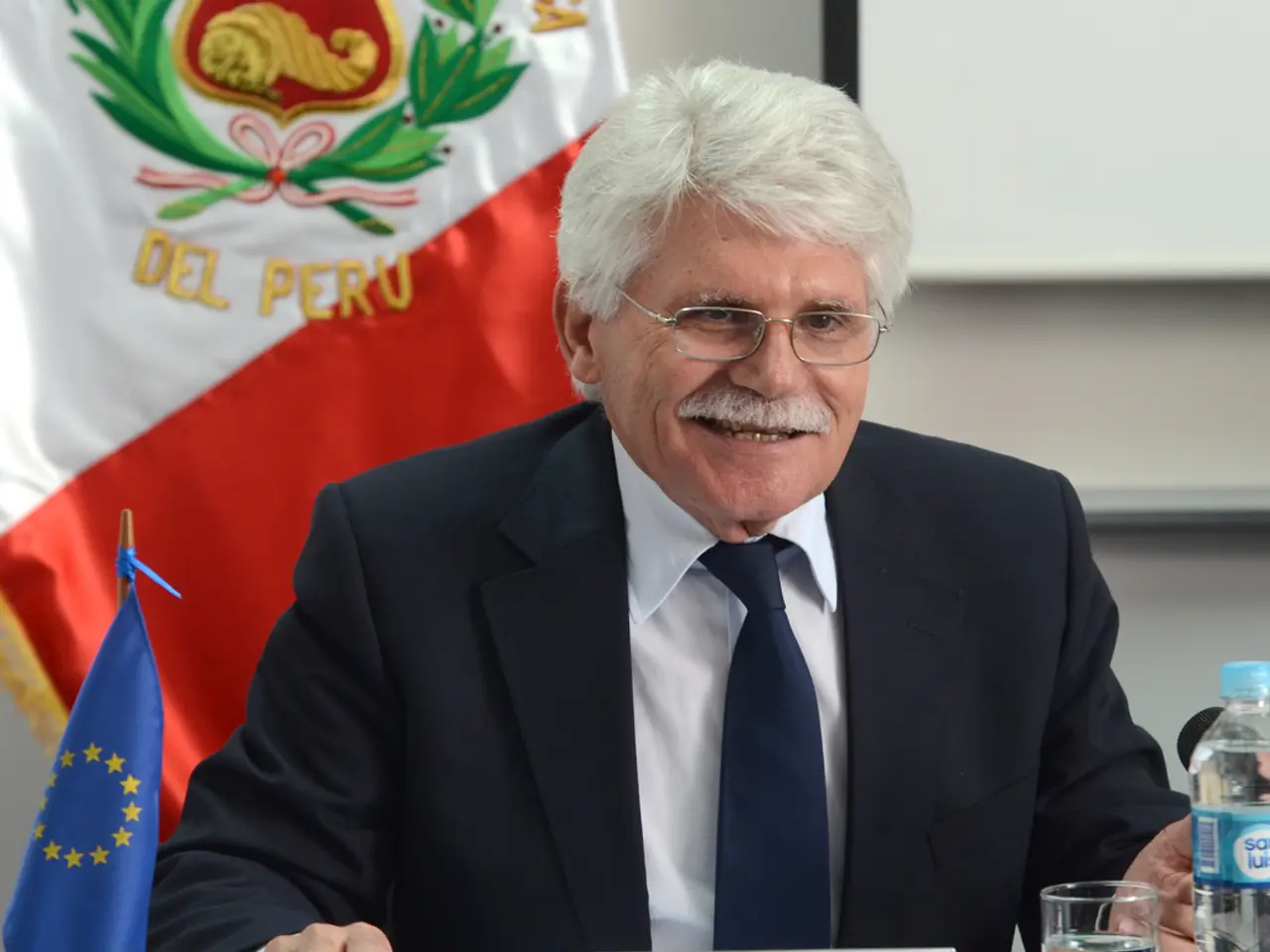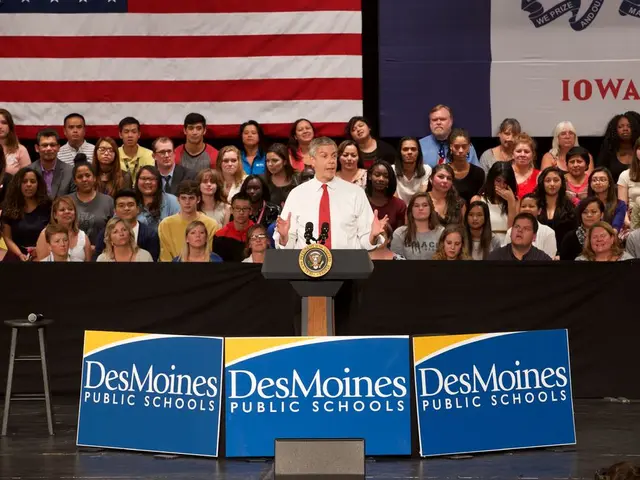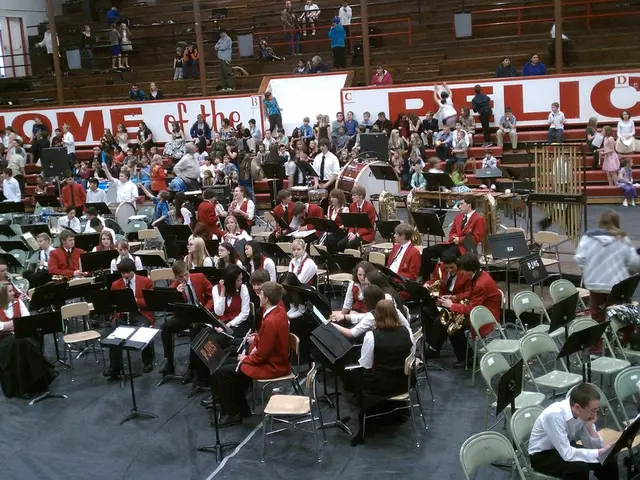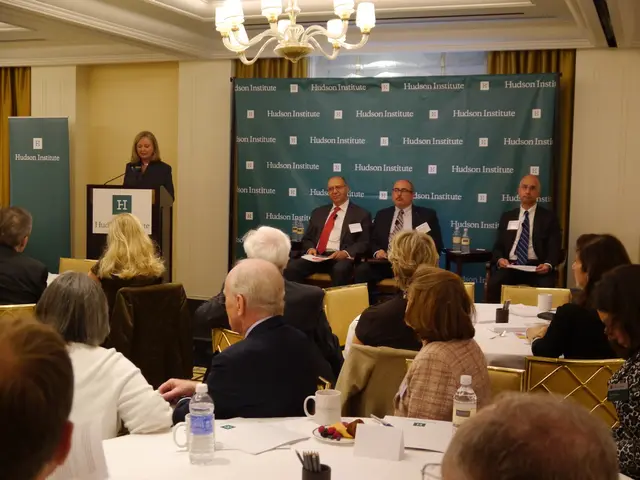Contest between two opposition figures in Bolivia's by-election
Bolivia Heads to a Runoff Election as the Country Struggles with Economic Crisis
Bolivia is facing a deep economic crisis, with fuel and foreign currency shortages, high inflation, and a lack of essential medicines. The country, one of the poorest in South America, is particularly affected in its rural and indigenous regions. Following the August 17 first-round election, a runoff will decide Bolivia's next leader on October 19, 2025.
The two candidates vying for the presidency are Senator Rodrigo Paz Pereira and former President Jorge "Tuto" Quiroga. Paz, the centrist candidate and leader of the Christian Democratic Party (PDC), received about 32.8% of the votes, while Quiroga, the right-wing former president representing the Libre alliance, received around 26.4% to 27%.
Rodrigo Paz seeks a moderate approach to address Bolivia's economic woes, with a focus on softening austerity measures while aiming to rescue the country from collapse. He advocates for institutional reforms and a moderate modernization program to facilitate foreign investment.
Jorge "Tuto" Quiroga, on the other hand, represents more traditional right-wing economic policies, aiming to implement selective privatizations, reduce the deficit in the public sector, and gradually reduce fuel subsidies.
The electorate in Bolivia seeks stability, according to KAS expert Stolte, unlike the radical course of President Javier Milei in Argentina. The economic debate in the runoff centres largely on how to address the looming economic crisis—with Paz advocating a more moderate economic recovery plan versus Quiroga’s more right-leaning turnaround strategy.
Notably, the candidates challenge the long-dominant Movement for Socialism (MAS) party, whose candidate finished sixth in the first round, marking a significant political shift for Bolivia after two decades of MAS governance. Additionally, many indigenous people who previously supported the MAS have announced their support for the opposition.
Bolivia holds the world's largest lithium reserves, a key resource for electric vehicles and batteries. The future government's approach to managing these resources could significantly impact Bolivia's economic future.
The runoff election comes amidst political turmoil, with left-wing candidate Andrónico Rodríguez being attacked with stones by suspected supporters of former President Morales after casting his ballot, and an explosion reported at the same location earlier. No immediate information on injuries was available.
Initial predictions favoured businessman Samuel Doria Medina for the runoff, but Paz's victory came as a surprise. The outcome of the runoff election will determine the course for Bolivia's future and its attempts to overcome the current economic crisis.
[1] BBC News (2025). Bolivia election: Rodrigo Paz Pereira and Jorge Quiroga head to runoff. [online] Available at: https://www.bbc.co.uk/news/world-latin-america-62498402
[2] Reuters (2025). Bolivia's Paz Pereira advances to runoff vote in presidential election. [online] Available at: https://www.reuters.com/world/americas/bolivias-paz-pereira-advances-runoff-vote-presidential-election-2025-09-09/
[3] The Guardian (2025). Bolivia's Rodrigo Paz Pereira wins first round of presidential election. [online] Available at: https://www.theguardian.com/global-development/2025/aug/17/bolivias-rodrigo-paz-pereira-wins-first-round-of-presidential-election
[4] AP News (2025). Bolivia's Rodrigo Paz Pereira advances to runoff vote in presidential election. [online] Available at: https://apnews.com/article/americas-bolivia-elections-politics-e6b38b9e500062272d8b9c6990e1f289
Read also:
- Executive from significant German automobile corporation advocates for a truthful assessment of transition toward electric vehicles
- United Kingdom Christians Voice Opposition to Assisted Dying Legislation
- Democrats are subtly dismantling the Affordable Care Act. Here's the breakdown
- Financial Aid Initiatives for Ukraine Through ERA Loans







